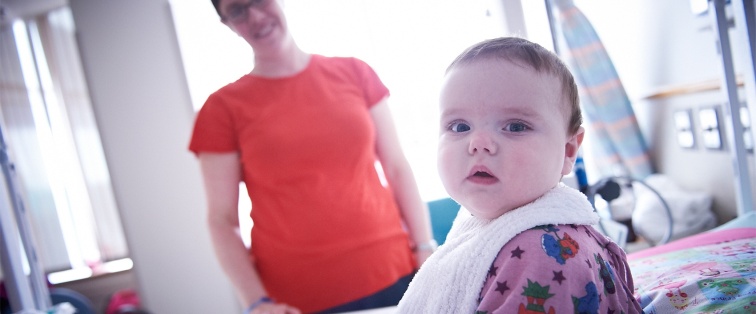Doing Something Now for Postpartum Depression Screening

In 2006, New Jersey became the first state to mandate screening and education for mothers with postpartum depression. Referred to as “Mother’s Law,” the impetus behind the law was then-Governor’s wife, Mary Jo Codey, who experienced postpartum depression following the birth of their first son in 1984. More recently, the Melanie Blocker Stokes MOTHERS Act was incorporated as part of the 2010 Affordable Care Act, encouraging federal efforts to combat postpartum depression through research, education, and comprehensive treatment services.
It is easy to overlook the gravity of the problem. Postpartum depression is viewed by some as simply a case of the “baby blues” which --quite normally-- follows childbirth. Unfortunately, this view can lead clinicians, legislators, and insurers alike to overlook the need for a more robust set of policy and practice strategies to address this issue.
The hope of the MOTHERS Act is to ensure that this issue, and the people who are affected by it, get the attention and support they need. Postpartum depression is more than just baby blues. It is a serious, incapacitating illness affecting anywhere from 10 to 20 percent of new mothers at a time when their infant requires considerable attention. Mothers with postpartum depression can have feelings of intense sadness and apathy, which can impact how they care for their babies. Moreover, mothers can have recurring thoughts of harming themselves, or worse yet, harming their infants. This was the case for Melanie Blocker Stokes, a mother with postpartum depression who took her own life, and the person for whom the federal Act was named.
What can clinicians do right now? To start with, they can screen mothers for postpartum depression. There are a number of screening tools, such as the Edinburgh Postnatal Depression Scale, that we know can do this. The Edinburgh scale has 10 questions and takes only a few minutes for a mother to complete at a well child visit or a postpartum visit. Clinicians can quickly score it and provide mothers with educational resources and a referral to get help in their community.
What can legislators and insurers do right now? Legislators can enact legislation similar to Mother’s Law in New Jersey, which mandates education, screening, and treatment for mothers with postpartum depression. Insurers can provide reimbursement for pediatricians and obstetricians who screen and for mental health providers who treat postpartum depression. It’s hard to provide health care if you aren’t paid for it.
What can we all do right now? We can be more aware of postpartum depression. We can circulate information on postpartum depression to new mothers and their partners. We can encourage mothers who may be suffering from it, to get help. Let’s support new mothers and help them to be well so they can be the best parents for their child.
